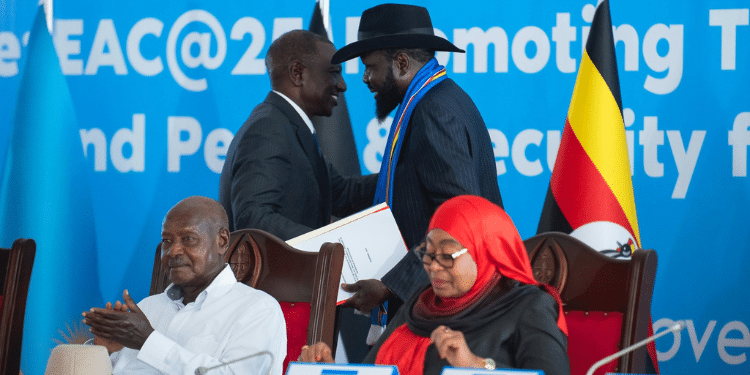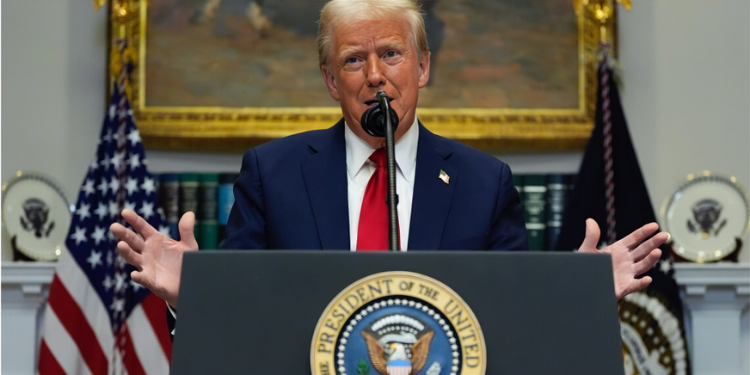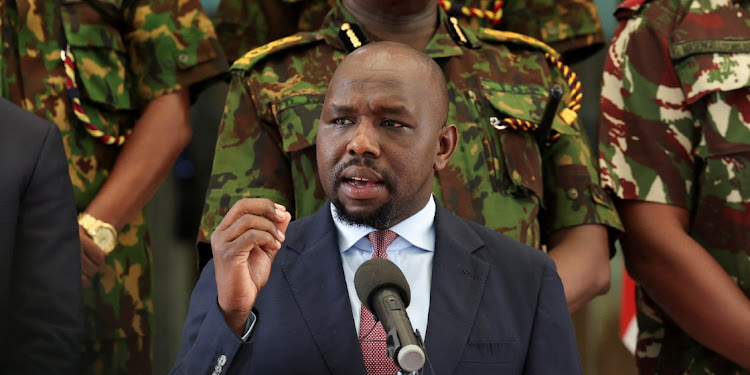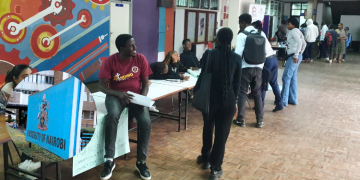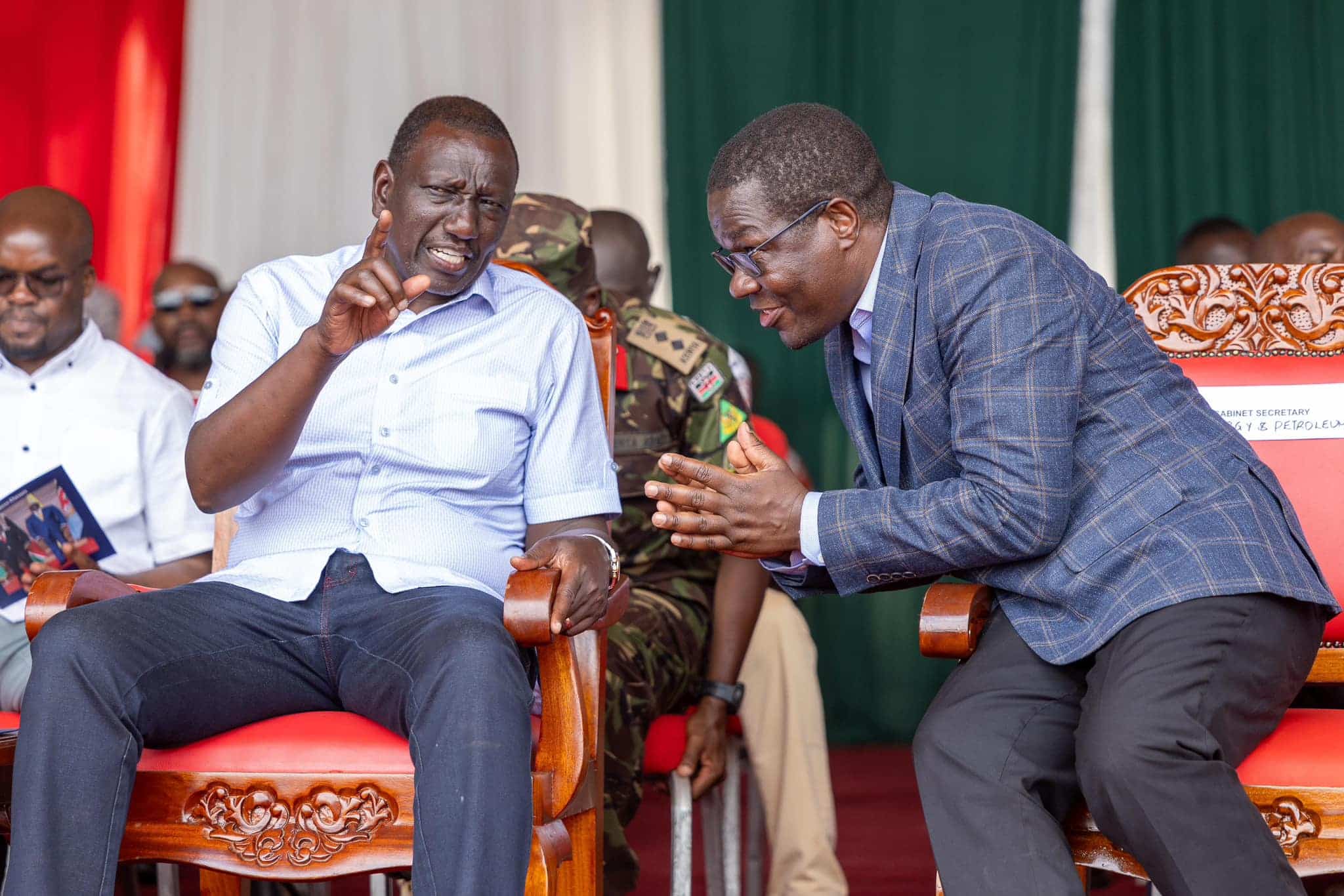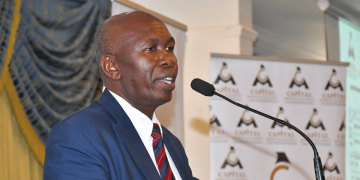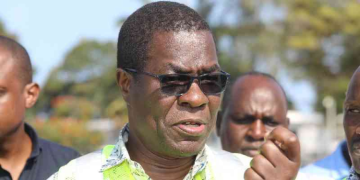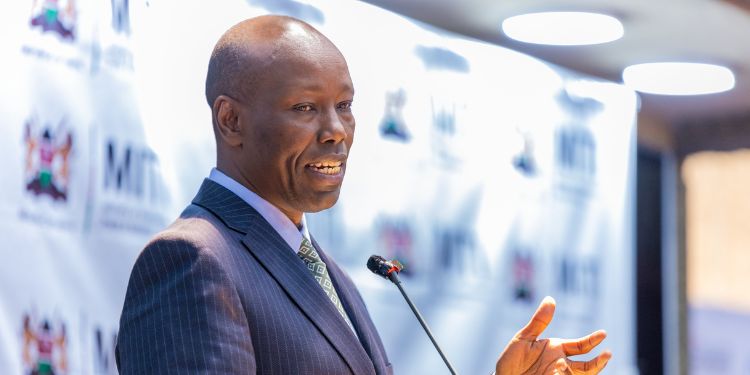The government has moved to calm exporters and investors after the East African Court of Justice (EACJ) suspended the implementation of the EU–Kenya Economic Partnership Agreement (EPA).
The Monday, November 24, 2025, ruling followed a case filed by the Centre for Law, Economics and Policy on East African Integration (CLEP-EA), which argues that the EPA violated the East Africa Community (EAC) treaty obligations and risks disrupting regional trade.
In a statement released on Wednesday, Ministry of Investments, Trade and Industry Cabinet Secretary Lee Kinyanjui acknowledged that the ruling had created uncertainty, saying it had “caused uncertainty to our traders and the business community at large.”
CS Kinyanjui stressed that the EPA remains central to Kenya’s export economy, describing the deal as “the lifeline of our booming exports and a source of livelihood to a large majority of Kenyans.”
Ministry of Trade responds after East African Court suspends EU–Kenya trade agreement
He assured producers that the government would protect access to European markets.
“The Government of Kenya wishes to confirm to its citizens and exporters that they will continue to access the EU market. We wish to assure all Kenyans, our trading partners as well as trading entities that Kenya will continue to trade with EU and steps are being taken to ensure continuity, predictability and protection of our existing commercial arrangements.”
The CS further confirmed that Kenya has already begun pursuing legal options to challenge the suspension.
According to him, the ministry has initiated measures including “seeking redress for this ruling through the appropriate appellate mechanisms aimed at setting aside the injunctive orders and allowing the continued implementation of the EPA pending the hearing and determination of the reference.”
The ministry is also engaging other EAC member states over how the bloc interprets Article 37 of the Customs Union Protocol, with Kinyanjui warning that “the over-judicialization of Article 37 only encourages forum-shopping, reduces policy space making the EAC appear anti-development in the eyes of investors and external partners.”
Also Read: Kenya Halts Export of Macadamia Nuts as Seasonal Trade Closure Begins
Reaffirming Kenya’s commitment to regional cooperation, the CS stated that the country remains guided by the principle of variable geometry, saying it has historically allowed partner states to pursue different speeds of integration “without undermining the collective growth and spirit of integration of the EAC.”
He noted that Kenya will host the upcoming EAC Summit, where “all critical issues touching on the State Parties to the EAC can be addressed at the highest level.”
EACJ ruling
The decision to suspend the EPA followed a petition filed by CLEP-EA in which the organisation argued that Kenya’s bilateral agreement with the EU violated EAC treaty provisions because other partner states were not consulted, despite the EPA originally being negotiated in 2014 as a bloc-wide agreement.
CLEP-EA also highlighted procedural concerns, noting that the Democratic Republic of Congo and Somalia joined the EAC between 2014 and 2023—the period during which the EPA was set to take effect—yet were not included in consultations.
The group from Uganda further warned that the agreement could disrupt the flow of goods and services within the region and expose the EAC to environmental risks.
Also Read: Key Trade Deals Kenya Has Secured with Major Global Powers Under Ruto Govt
Although the East African Court of Justice did not rule on the merits of the case, it stated that the issues raised were serious and that any potential environmental harm would be irreversible. The court therefore ordered a freeze on implementation until the matter is fully heard and determined, a process that could take several months, given the EACJ’s usual pace.
The suspension is significant for Kenya, whose trade with the EU—valued at €3 billion in 2023—includes nearly €1.2 billion in exports. The EPA was designed to support Kenya’s industrial competitiveness by gradually reducing tariffs on select European imports.
No other EAC member state has yet joined the agreement, with a progress report expected at the EAC Heads of State Summit scheduled for December 5-6 in Nairobi.
Follow our WhatsApp Channel and X Account for real-time news updates.
